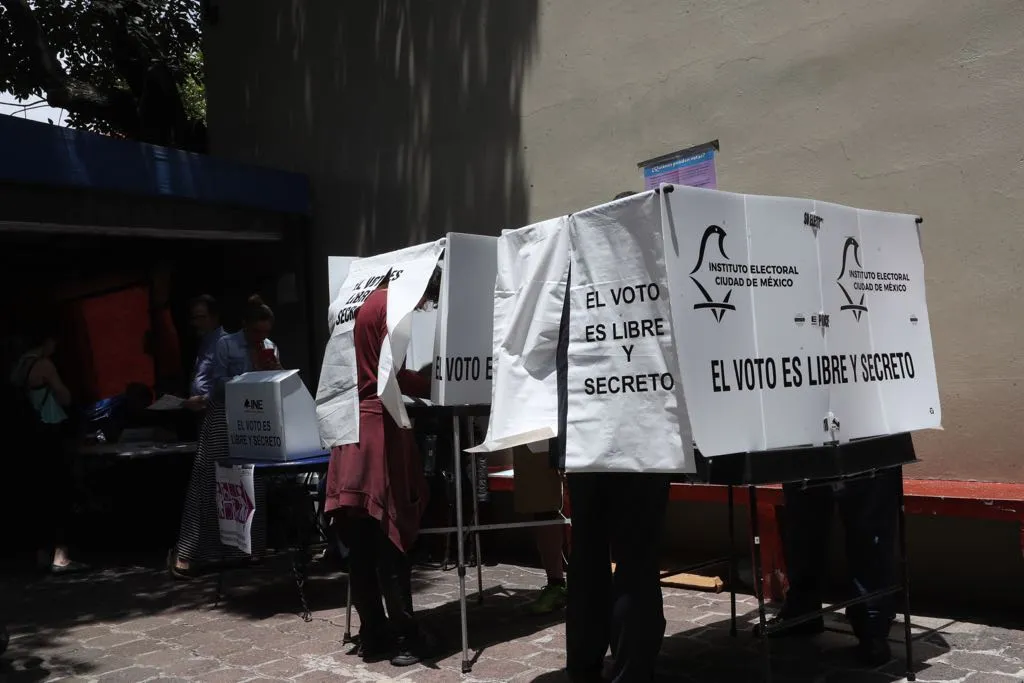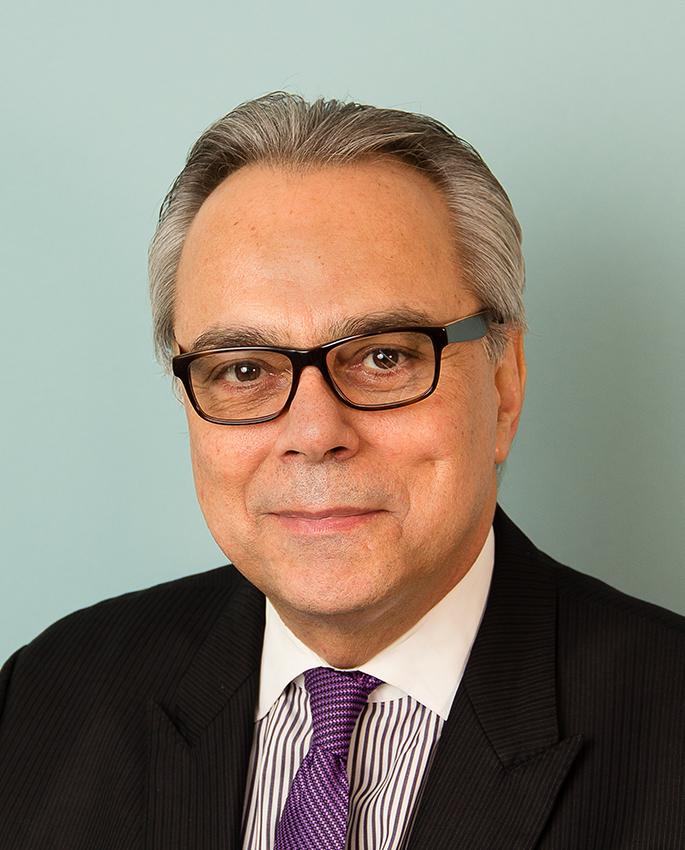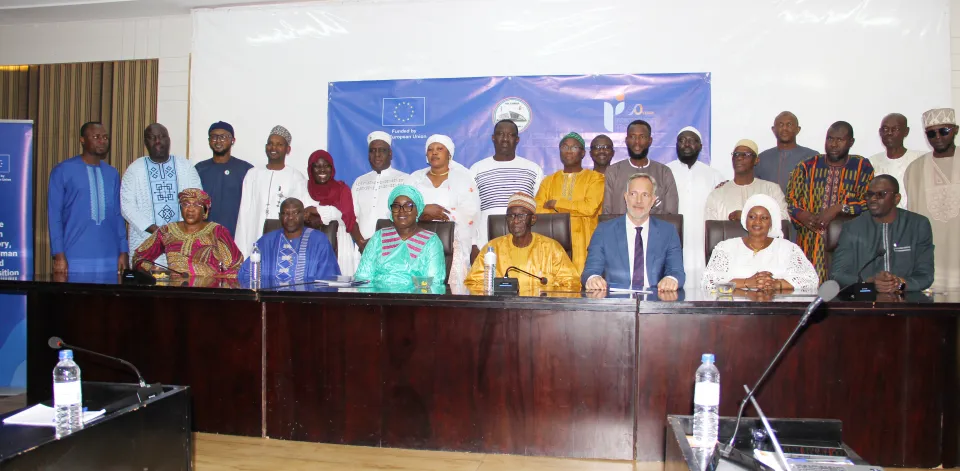
Disclaimer: Views expressed in this commentary are those of the staff member. This commentary is independent of specific national or political interests. Views expressed do not necessarily represent the institutional position of International IDEA, its Board of Advisers or its Council of Member States.
Este articulo se encuentra disponible en Castellano.
On 1 July, more than 89 million citizens were called to the polls to participate in the biggest election in Mexican history: up for election were the presidency, 100 per cent of both houses of Congress, 84 per cent of the state legislatures, 86 per cent of the state legislators, and 66 per cent of the mayoralties of Mexico.
It was a well-organized election that unfolded normally, with only a few incidents, with 63.42 per cent participation, and whose most significant negative was the political violence. During the campaign more than 145 politicians were assassinated (48 of them candidates at the state or local level), most shot down by organized crime and drug-trafficking interests.
Is López Obrador the Mexican Chávez, as claimed by his detractors? Is there a risk of Mexico becoming a new Venezuela?
Equally historic was the quantum of political power that changed hands. The Movimiento de Regeneración Nacional (Morena, founded in 2014) and its allies (the PT and the PES) won not only the presidency, but also comfortable majorities in both houses of Congress, four of the eight governorships at stake (Morelos, Chiapas, Tabasco, and Veracruz), the head of the government of Mexico City, and numerous local positions. Andrés Manuel López Obrador (AMLO) obtained a compelling 53.19 per cent (30 million votes, making him the president with the most votes ever in Mexican history), a 31-point advantage over the second-place finisher, Ricardo Anaya (22.27%), leader of the coalition headed up by the PAN, and 37 points over the third-place finisher, José Antonio Meade (16.40%), the candidate of the coalition led by the party in power, the PRI.
These results caused a genuine political tsunami, from which emerged a Mexico that is politically different from what we have known until now.
The three traditional parties, the PRI, PAN, and PRD, suffered a smashing defeat and Morena (founded just four years ago) is now positioned as the leading political force in this new scenario.
Reasons behind the victory. First is the low approval rating (20%) of President Peña Nieto due to the mediocre economic results of his structural reforms, together with the high levels of insecurity (29,000 homicides in 2017) and the obscene corruption and impunity as a result of a “system of justice incapable of producing justice.”
Second is a complex socioeconomic context: Almost 50 per cent poverty and high inequality, along with a very low level of satisfaction with democracy (18%), an equally low and declining level of support for democracy (38%), and the weakness and discredit of the traditional parties.
Another consideration is AMLO’s tenacity (it was the third consecutive time he ran for president), his integrity, and, above all, being the candidate who had the most lucid reading of the particular moment in Mexico, the discontent with the traditional parties, corruption, and insecurity.
The challenges. AMLO has great challenges ahead. During the long five-month period from July 2 to November 30, in his capacity as president-elect he should guarantee an orderly transition, conveying certainty and trust to the political actors, the business groups and foreign investors, and those citizens who did not vote for him. The first messages from AMLO have been along those lines.
This pragmatism was also present during his meeting with President Peña Nieto, last Tuesday, and when meeting with the Consejo Coordinador Empresarial (CCE), one of the most critical voices during the campaign, and which has now expressed its support, and to whom he reaffirmed his commitment to respect the autonomy of the Banco de México, to defend free enterprise, not to expropriate or increase taxes, not to incur higher levels of indebtedness, and to be fiscally responsible. The financial markets, anxious before the election, so far have responded with relative calm.
As of December 1, upon assuming office, AMLO will face three main challenges. First, translating his discourse of reconciliation and respect for democratic practices into concrete action. In his first speeches López Obrador has reaffirmed his commitment to govern democratically, respect civil and political liberties, and respect the separation of powers.
The second challenge consists of managing the high expectations that have accompanied his election and showing that he has a realistic plan to carry out his campaign promises. AMLO should govern effectively, carrying out the profound changes promised, but without provoking too many disruptions, to increase economic growth (today stagnant around 2.2%), reduce poverty, diminish inequality, generate quality employment, and directly take on the obscene levels of corruption, insecurity, and impunity.
Otherwise, just as the current malaise was transformed into anger and a clear vote punishing the incumbent parties, the hope that AMLO has proven capable of awakening in a majority of the citizenry could quickly become transformed into a dangerous frustration that could cost him in the 2021 midterm elections.
The third challenge—international—is to have as mature and respectful a relationship with President Trump as possible (certainly no easy task), especially in relation to the sensitive migration issue, the renegotiation of NAFTA, and the building of a wall between the two countries.
Final reflection. The complex juncture in Mexico described above helps understand not only that the citizens are discontent and have had enough, a sensation that has surrounded this whole process, but also why in this election anger and disgust (with the traditional political parties and the elites) won out over the fear of electing an anti-establishment, charismatic, and populist candidate like López Obrador.
AMLO’s crushing victory opens up unprecedented opportunities, but also great uncertainties for Mexico. Is AMLO the Mexican Chávez, as his detractors claim? Is there a risk of Mexico becoming a new Venezuela? In my opinion, none at all.
Once in power AMLO will adopt a more pragmatic position, as he has already been doing since election night; he’ll moderate his campaign proposals and move towards the political center.
This does not mean that he has renounced carrying out the profound changes he has promised. I’m convinced that he will try to implement them. Yet if he wants to be successful in his promised “fourth transformation” he should seek his main points of reference not in the discredited chavismo, but in the moderate and successful left governments of Uruguay (Mujica and Vázquez) and Chile (Lagos and Bachelet).
The night of Sunday, 1 July , AMLO publicly confessed that his greatest ambition was to go down in history as a “good president” and that he would not let down the Mexican people. As of 1 December, 127 million Mexicans will be paying close attention to whether López Obrador is keeping his word—and, one would hope, demanding that he do so.
This article was originally published in Spanish in La Nación. The English translation was undertaken by International IDEA.




